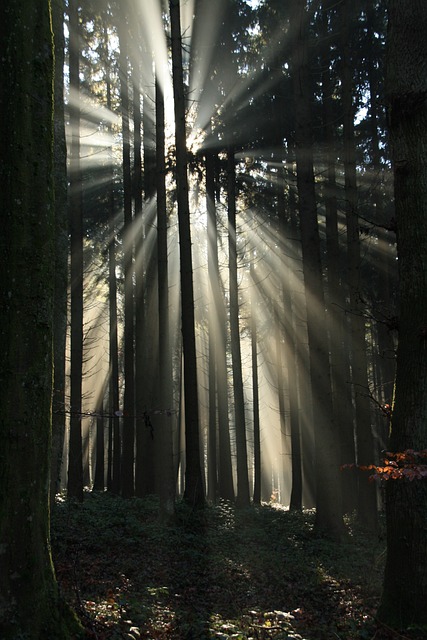Traditional funerals in Albury Wodonga honor a rich cultural tapestry shaped by indigenous traditions and European settler influences, with contemporary religious beliefs also playing a role. These practices have evolved over time to integrate historical customs with modern preferences, offering services that celebrate individual lives while respecting ancestral traditions. Today's funerals in the region strike a balance between this heritage and personalized touches, ensuring they remain meaningful and relevant to the community. Funeral homes are expert at guiding families through this process, providing a seamless blend of continuity with modern sensibilities. Traditional funerals here serve as a tribute to both the past and present, reflecting the region's unique cultural heritage and community values, while also offering solemn and respectful farewells that provide closure for loved ones.
nestled along the banks of the Murray River, Albury Wodonga offers a unique blend of history and tradition that is reflected in its funeral practices. This comprehensive guide delves into the rich heritage of traditional funerals in the region, exploring their historical evolution, cultural significance, and the ways in which they continue to honor life and cherish memories. From the earliest traditions and rituals shaped by European settlement to the modern services that respect these roots while incorporating contemporary elements, we will navigate the nuances of planning a traditional funeral in Albury Wodonga. We will also provide valuable insights into how families can personalize services to reflect their loved ones’ unique lives and cultural preferences, all while considering the financial aspects involved. This article is designed to serve as an informative resource for those seeking to understand the depth and importance of traditional funerals in Albury Wodonga, highlighting why they remain a cherished and popular choice among many.
- Historical Evolution of Funeral Practices in Albury Wodonga
- – The Earliest Traditions and Rituals
- – Influence of European Settlement on Local Funeral Customs
Historical Evolution of Funeral Practices in Albury Wodonga

The historical evolution of funeral practices in Albury Wodonga reflects a tapestry of cultural influences, religious beliefs, and community values that have shaped the region’s approach to end-of-life ceremonies. Historically, indigenous communities in the area had their own traditions for honoring the deceased, which were later influenced by European settlers in the 19th century. As time progressed, traditional funerals in Albury Wodonga began to incorporate elements from various faiths and practices, such as Christian rituals that became prevalent due to the significant European influence.
Today, traditional funerals in Albury Wodonga continue to honor these historical roots while also adapting to modern sensibilities. They typically involve a service that pays tribute to the life of the deceased, often with religious overtones, followed by burial or cremation. These services are conducted by funeral homes that have a deep understanding of the local traditions and can offer guidance on how to respectfully incorporate family customs into the ceremony. The evolution of funeral practices in Albury Wodonga has been one of gradual change, ensuring that traditional funerals remain both meaningful and relevant to the community, offering a sense of continuity and connection with past generations. Funeral homes in the region are adept at balancing these historical aspects with modern preferences, providing families with options that reflect their loved ones’ personalities and life stories within the framework of a traditional funeral service.
– The Earliest Traditions and Rituals

The earliest traditions and rituals surrounding funerals in Albury Wodonga are steeped in both indigenous practices and later European influences, reflecting a rich cultural tapestry. For the region’s indigenous peoples, funerals were deeply connected to the land and spiritual beliefs, often involving significant ceremonies to honor the deceased and ensure their safe passage to the afterlife. The arrival of European settlers introduced new elements to these practices, including religious ceremonies and cemetery burials, which became a part of the local tradition. Over time, the funerals in Albury Wodonga developed into a unique blend of both traditions, with each community contributing their own customs and rituals.
In contemporary times, traditional funerals in Albury Wodonga continue to honor these historical roots while also incorporating modern elements to meet the diverse needs of the community. A traditional funeral service here typically includes a religious ceremony, a procession to the burial site or a memorial garden, and a period of mourning. It often features eulogies, readings, and music that reflect the life of the deceased and the values held by their family. These services are conducted with the utmost respect for the deceased and are designed to provide comfort and closure to the bereaved. Funeral homes in Albury Wodonga are well-versed in facilitating these traditional practices, ensuring that they remain a significant and meaningful part of the community’s cultural heritage.
– Influence of European Settlement on Local Funeral Customs

In Albury Wodonga, the tradition of funerals is steeped in history and cultural significance, reflecting a deep respect for the deceased and providing comfort to grieving families. This article has explored the historical evolution of funeral practices, the elements that make up a traditional funeral, and the reasons why many continue to choose this timeless service. From understanding the costs involved to personalizing ceremonies to honor individual legacies, Albury Wodonga offers a range of options for those seeking a traditional funeral. It is clear that these practices not only celebrate the lives of loved ones but also uphold the rich cultural tapestry of the region. As we have seen, traditional funerals in Albury Wodonga remain a relevant and popular choice, offering a way to blend revered customs with modern sensibilities. Whether through religious rites or familial traditions, these services continue to fulfill their purpose as a means of support, remembrance, and healing within the community. For those considering funeral arrangements, this guide aims to provide valuable insights into planning a meaningful and respectful farewell that aligns with local customs and personal wishes.
